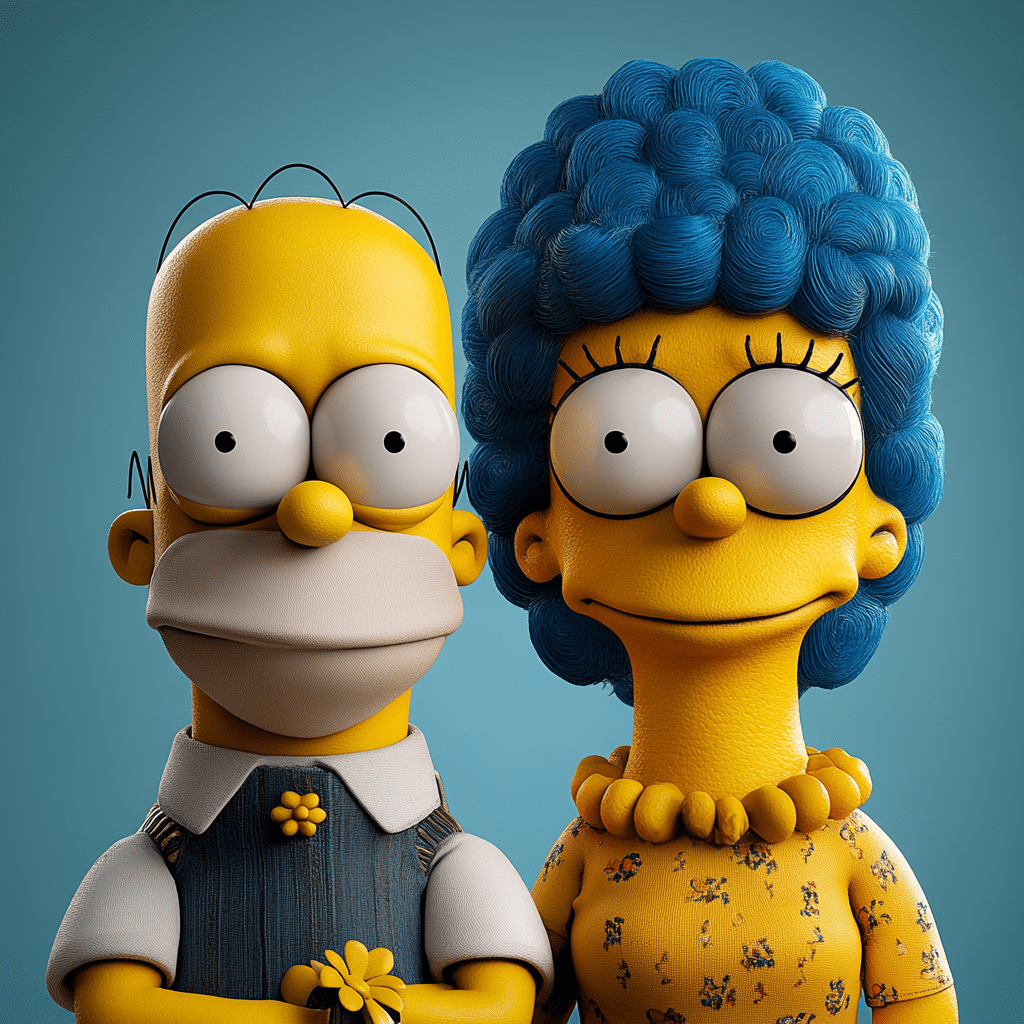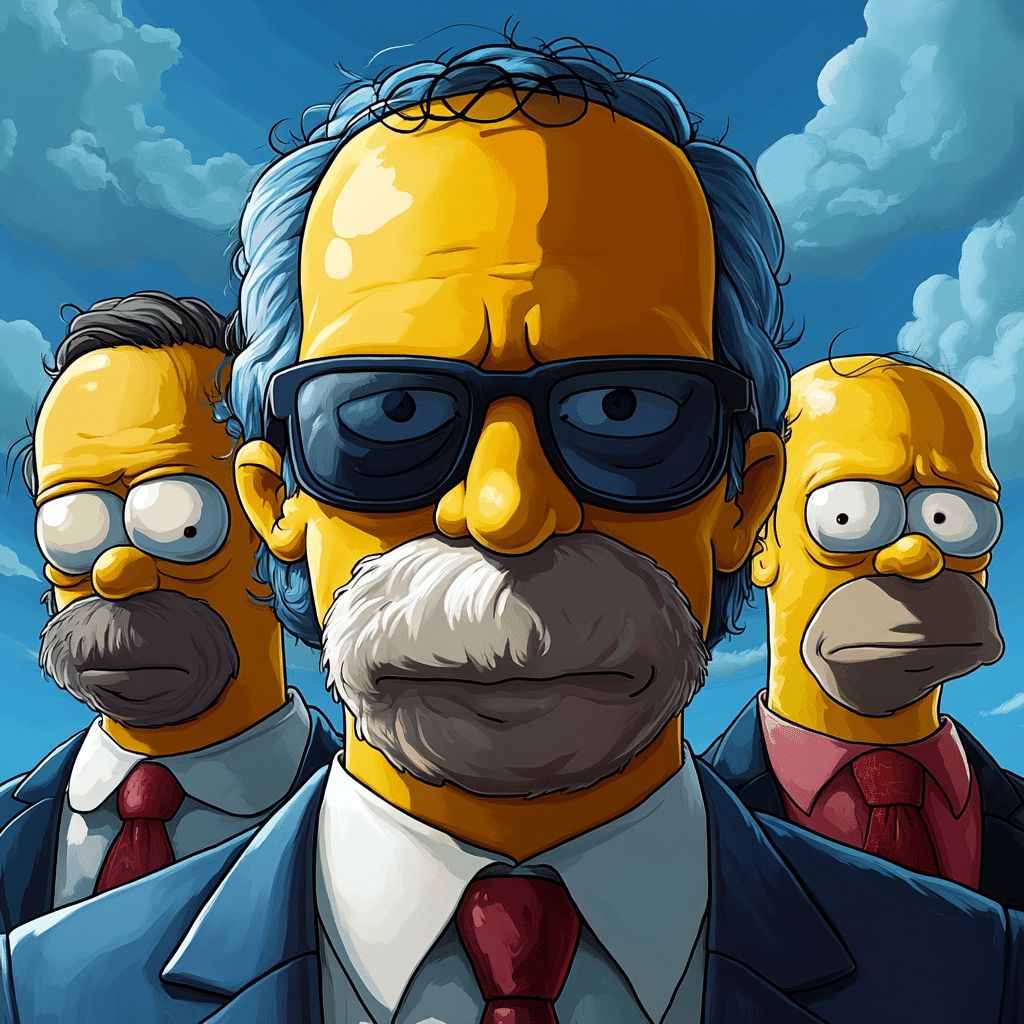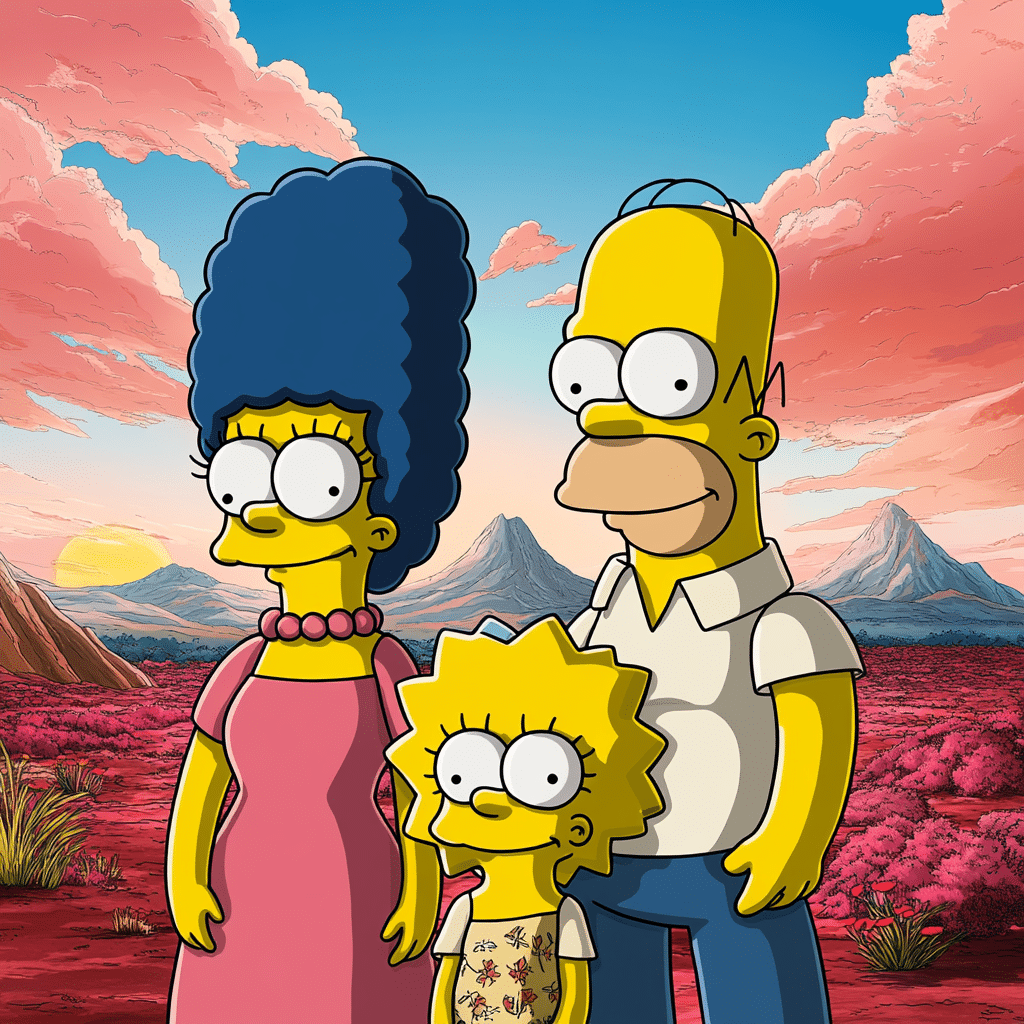Since its debut in 1989, The Simpsons has carved out a niche in pop culture like no other show. Now, for over 30 years, it has rolled out episode after episode filled with memorable The Simpsons characters whose impact stretches far beyond Springfield. They have shaped conversations around family dynamics, societal norms, and even our choices in films and shows. In this journey down memory lane, we’ll shine a light on the seven iconic characters that truly defined a generation and left a lasting imprint on our culture.

Top 7 The Simpsons Characters That Shaped Pop Culture
Homer Simpson is perhaps the most recognizable figure from The Simpsons. With his lovable klutziness, he captures the heart of what it means to be an everyman father. His best moments showcase relatable struggles like needing a donut fix or misplacing the TV remote. Surveys show that Homer’s character has influenced modern sitcom dads like Phil Dunphy from Modern Family, making earlier representations of fatherhood feel dated. It’s no wonder we find ourselves quoting him when things go awry in our lives. D’oh!
Lisa Simpson is not just the smart kid in school; she’s a powerhouse of activism and intelligence. Always raising her voice for environmental causes, feminism, and social issues, Lisa is a breath of fresh air in an animated landscape often dominated by male characters. Her intellectual pursuits resonate with today’s youth, inspiring movements akin to those led by Greta Thunberg. Who knew that a cartoon character would play such a crucial role in instilling values of social justice in real-life kids? Lisa’s presence teaches us that being passionate and knowledgeable is a superpower.
Bart embodies youthful rebellion. His catchphrases, from “Eat my shorts!” to “Don’t have a cow, man!” perfectly encapsulated the spirit of defiance in the ’90s. Bart is the anti-hero we all wanted to be—flawed, mischievous, and unapologetically himself. His adventures paved the way for later complex characters such as Jesse Pinkman from Breaking Bad, who also grapples with moral dilemmas while maintaining a very human core. Bart’s charm lies in showing that it’s okay to bend the rules a little—just don’t get caught!
Mr. Burns serves as the embodiment of corporate greed, always one step away from a nefarious plot. His characterization opens a dialogue about wealth and inequality, relatable topics even today. The way he mirrors real-life businessmen adds layers to his portrayal, particularly in this era of corporate scandals. From discussions about the ethical responsibilities of mega-corporations to laymen’s tales of everyday struggles, Burns challenges us to take a hard look at capitalism itself. After all, he’s as greedy as they come, yet we can’t help but laugh at his outrageous schemes.
Marge is synonymous with the term “motherly love,” balancing a sense of self with the chaos of family life. As the glue keeping her quirky clan together, her character challenges traditional images of motherhood. With struggles that resonate with many women, especially amidst changing societal norms, Marge offers authenticity that future animated mom figures like Linda Belcher from Bob’s Burgers have emulated. Her dedication to her family presents an understanding that being a mom isn’t an easy gig, but it’s one filled with rewards—thanks to the satisfying moments of familial connection.
Ever the overly optimist, Ned Flanders represents the complexities surrounding faith in a secular world. By portraying him as a genuinely kind neighbor amidst Springfield’s chaos, the show provides a refreshing perspective on religious stereotypes. His character has sparked dialogue about faith, tolerance, and morality, paving the way for more intricate portrayals of religion in modern media. You can’t help but chuckle at his unwavering faith, as he brings a sprinkle of warmth and humor to life’s everyday challenges.
Krusty represents the twin face of entertainment—the public persona and the private struggles. Much like real-life stars such as Robin Williams, Krusty’s character dives into the irony of fame and the facade that public figures often maintain. Underneath the clownish exterior lies a depth that makes his story hauntingly relatable, especially as discussions about mental health become more prevalent. His storyline reminds us that even those who make us laugh can carry deep pain, making his character resonate with so many.

Simpsons Predictions and Their Impact on Cultural Trends
One of the most fascinating aspects of The Simpsons is its knack for forecasting future trends and events. Who could forget when Homer became the president? Or how smartwatches appeared way before they became commonplace? The show functions as a cultural time capsule, reflecting our anxieties and aspirations, making it way more than just a sitcom. Cultural critics assert that these predictions often parallel our real-world events, allowing us to explore the synergy between entertainment and our societal concerns. It’s like looking into a crystal ball—only way funnier.
The Lasting Legacy of The Simpsons Characters
The characters in The Simpsons have set the narrative tone for generations, providing us with a blend of humor, critique, and insight. They’re not just cartoon figures; they’re mirrors reflecting life’s ups and downs. Every episode is a lesson in love, loss, and laughter, leaving a legacy that continues to echo in various aspects of pop culture today. As we move further into this decade, the significance of The Simpsons characters remains undeniable, ensuring that their reach endures for years to come.
These animated geniuses encapsulate the human experience in a way that’s both humorous and poignant, proving that The Simpsons is much more than entertainment. It’s a cultural phenomenon that speaks to the essence of humanity while keeping us laughing—sometimes more than we care to admit! So next time you catch a glimpse of Homer, Marge, or Bart, remember their impact—you might just be witnessing history in the making.
The Simpsons Characters Who Defined a Generation
Iconic Characters That Shape Our Memories
When we think about iconic characters from The Simpsons, there’s no shortage of standouts that left a mark on pop culture. Homer Simpson, with his signature catchphrase “D’oh!”, embodies the quintessential bumbling dad who still somehow manages to be loveable. Did you know that his character design was influenced by a convenience store worker Matt Groening met in the ’80s? That’s just one of many fascinating tidbits surrounding these beloved figures. Speaking of memorable influences, isn’t it interesting how some characters, like Marge with her towering blue hair, have sparked discussions on everything from style to pop culture references like the history of Redheads in media, often stealing scenes and hearts?
Behind The Scenes: The Creation and Impact
Moving behind the curtain, the creation of these characters wasn’t just a stroke of genius but also a keen observation of society. For instance, Krusty the Clown was inspired by a combination of several comedians and television personalities, illustrating a warped reflection of the entertainment industry. Moreover, Lisa Simpson, often considered a feminist icon, plays a pivotal role in tackling issues from environmentalism to education, making her deeply relatable for a generation seeking authenticity. It’s a bit like how modern video games, say for example Gears Of War 6, draw on storytelling to increase engagement; The Simpsons similarly interconnects humor and social commentary, crafting a narrative that resonates across age groups.
Trivia That Makes You Go “Wow!”
Let’s sprinkle in some fun trivia! Did you know that Bart Simpson was originally modeled after Matt Groening’s own rebellious nature as a child? That’s one of the reasons why he became an emblem of youthful defiance. On a different note, while discussing artistry, one might think of the varied paths actors have taken, akin to those explored in various Ethan Hawke Movies And TV Shows. Each character in The Simpsons, like Moe Szyslak and Nelson Muntz, brings distinct life experiences to the table, proving that even the most outrageous archetypes can foster meaningful discussions. Just like you might stumble upon an unexpected gem while browsing platforms like Spydialer, the show invites viewers to connect the dots of social context and character depth, enriching our understanding of both.
These characters, with their quirks, wisdom, and outsized personalities, indeed shaped a generation, proving that The Simpsons isn’t just a cartoon but a cultural cornerstone that continues to reflect our own lives and times.





